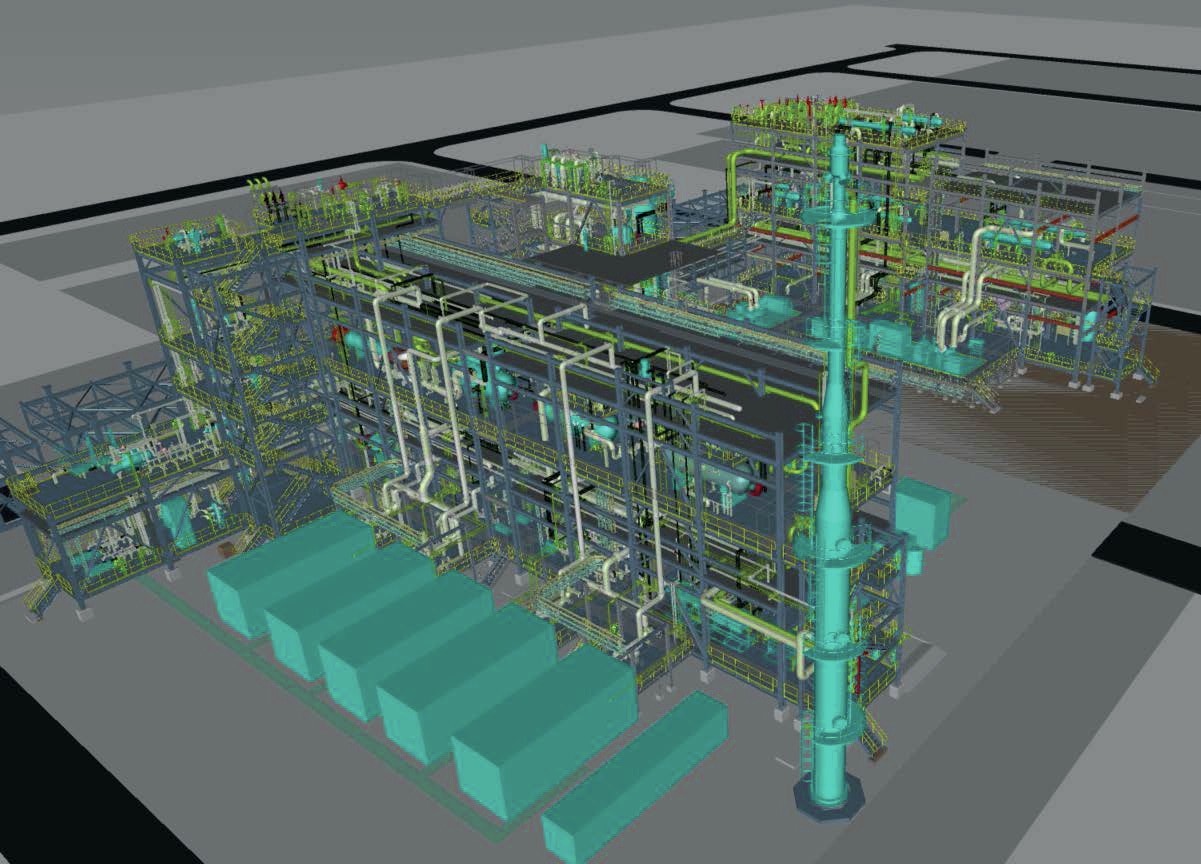Fertilizer International 496 May-Jun 2020

31 May 2020
Fertilizer Industry News Roundup
Fertilizer Industry News
BELARUS
BPC agrees potash contract with China
A consortium of Chinese buyers has agreed the first potash contract with the Belarusian Potash Company (BPC) since September 2018.
The deal is significant as BPC, the trading arm of state-owned mining company Belaruskali, controls more than 20 percent of the global potash market. The Chinese buying c onsortium includes the China National Agricultural Means of Production Group and state-owned Sinofert and CNOOC.
Controversially, the new potash contract was agreed on the 1st May at a price of $220/t cfr, sharply down by some $70/t from previously agreed levels. BPC cited the difficult macroeconomic backdrop to its negotiations – including sharp local currency devaluations, an almost unprecedented oil price collapse, other commodity price falls and the Covid-19 pandemic.
“The price of the new China contract builds a firm foundation for the stabilization, recovery and further incremental development of the global potash market,” BPC said in a statement.
Although the total contract volume has not been disclosed, BPC says it will supply volumes to China for the rest of this year. Annual potash contracts in China usually see 5-6 million tonnes agreed between international suppliers and domestic buyers, according to Argus Media.
“Although this underlines the magnitude of spot price erosion since 2018, it nevertheless sets a new floor for the market,” Humphrey Knight, CRU’s senior potash analyst, toldmining.com.
“Suppliers will now hope this finally brings stability to weak spot prices and ultimately tightens global product availability.”
Potash stock levels are at a record high and exporters will wish to clear these as soon as possible, Knight said. This means it will be months before China requires significant new potash supply, in his view.
Rival Russian potash producer Uralkali reacted strongly to news of the BPC contract and the settlement price.
In a statement, Uralkali said it would “consider whether it is prepared to conclude contracts at the price set by BPC”. Uralkali said the terms agreed by BPC “do not reflect the real market situation that is developing at this time, or its outlook”. It went on to describe the agreed price as inappropriate for both the contract and the potash industry as a whole.
“Potash producers incur high investment costs in order to maintain existing production capacities and develop new deposits. This activity is necessary to meet the growing global demand for fertilizers. If contracts are agreed at the price levels agreed by BPC, in the long term this will drive producers to cut their capital investment and, ultimately, will lead to a shortage of potassium chloride in the market,” Uralkali said.
China imported around one million tonnes of potash from Canada, 690,000 tonnes from Russia and 290,000 tonnes from Belarus during the first-quarter of 2020.
RUSSIA
Aumund secures large PhosAgro order
PhosAgro has ordered eight chain bucket elevators from Germany’s Aumund Group. These are required for the company’s Metachem production plant near St Petersburg, Russia.
The eight high-capacity bucket elevators will be installed at the Metachem plant for handling monoammonium phosphate (MAP) and diammonium phosphate (DAP) produced on-site. The MAP and DAP handling capacities of the bucket elevators range from 100-400 t/h. They vary in height from 18 metres to 43 metres. Five of the bucket elevators have already been dispatched, with the three others due to follow shortly.
Aumund made its initial sale to PhosAgro’s Metachem plant back in 2014, its very first Russian fertilizer industry equipment order. The company has also supplied equipment to PhosAgro’s Cherepovets and Balakovo plants in recent years. Aumund Group’s relationship with PhosAgro also extends to its subsidiary Schade – which has supplied portal reclaimers to the Cherepovets plant previously.

BELGIUM
Prayon part-buys EcoPhos assets
Prayon has acquired the intellectual property of phosphate technology company EcoPhos.
The purchase, which includes the company’s patents portfolio and process know-how, comes after EcoPhos filed for bankruptcy in March. Prayon has also bought Technophos, an EcoPhos-owned industrial demonstration plant in Varna, Bulgaria, as part of the deal.
EcoPhos, a Belgian company based in Louvain-la-Neuve, was founded by its CEO Mohamed Takhim in 1996. Innovative modular process technology developed by the company is capable of producing high-quality phosphoric acid from low-grade phosphate rock. This proprietary chemical production route does not involve beneficiation, has low energy requirements and generates pure gypsum as a by-product. The phosphoric acid produced is suitable for the manufacture of fertilizers and feed, food and technical phosphates.
EcoPhos owned 10 international patents, employed more than 300 people and generated revenues of e170 million, as of 2017. Its wholly-owned subsidiary Aliphos is Europe’s largest feed phosphates producer, owning three manufacturing plants with a combined production capacity of 620,000 t/a. EcoPhos was also developing joint venture projects in Egypt and India with Evergrow and GNFC.
Aliphos purchased a major feed phosphates plant in Rotterdam in the Netherland from Tessenderlo in 2009. A second feed phosphates plant in Devnya, Bulgaria, was originally developed in 2002 as Decaphos, a joint venture between EcoPhos and Agropolychim. The latest Aliphos plant, a 220,000 t/a capacity operation located in Dunkirk, France, opened in 2017 and uses EcoPhos technology.
“Prayon is very happy to announce this acquisition since it fits perfectly with our strategy,” said Marc Collin, Prayon’s chief technology officer. “The process portfolio proposed by EcoPhos is complementary to that offered by Prayon through its licensing division. We will continue to promote them in parallel as they have their own particular specificities. It is also an important step towards our goal to become an important actor of the circular economy.”
Belgium-headquartered Prayon is jointly owned by the Wallonia regional investment company (SRIW) and Morocco’s OCP Group. The company employs over 1,100 staff and manufactures purified phosphoric acid and a wide range of phosphate products for the fertilizer, food and industrial markets. It operates four production sites internationally – two in Belgium, one in France and another in the United States. Its Prayon Technologies (PRT) arm provides the know-how and technology for more than 60 percent of the world’s phosphoric acid manufacturing plants.
TURKEY
Tecnimont wins fertilizer plant contract
Maire Tecnimont has signed a e200 million construction contract to build a new fertilizer plant for Gemlik Gübre Sanayii Anonim Sirketi.
The engineering, procurement and construction (EPC) contract is for a new urea and urea ammonium nitrate (UAN) plant at Gemlik, 125 kilometres south of Istanbul. The plant will have a production capacity of 1,640 t/d for granular urea and 500 t/d for liquid UAN.
The project to build the Gemlik plant should be completed within three years. The EPC contract covers the plant’s engineering, the supply of all equipment and materials, and construction and erection works. The plant will use urea technology licensed by Stamicarbon, the Netherlands-based, wholly-owned subsidiary of Maire Tecnimont.
Gemlik Gübre is part of Yildirim Holding, a multi-billion dollar diversified conglomerate. The Turkish industrial company has interests ranging from chemicals and fertilizers to ports and logistics, and metals and mining. It already produces ammonia and other fertilizers at the Gemlik site, which has direct sea port access to the Mediterranean.
Pierroberto Folgiero, Maire Tecnimont’s CEO, said: “We are extremely proud of this new achievement that confirms [our] leadership in the fertilizer sector and allows us to expand our geographical footprint in a strategic market such as Turkey.”






